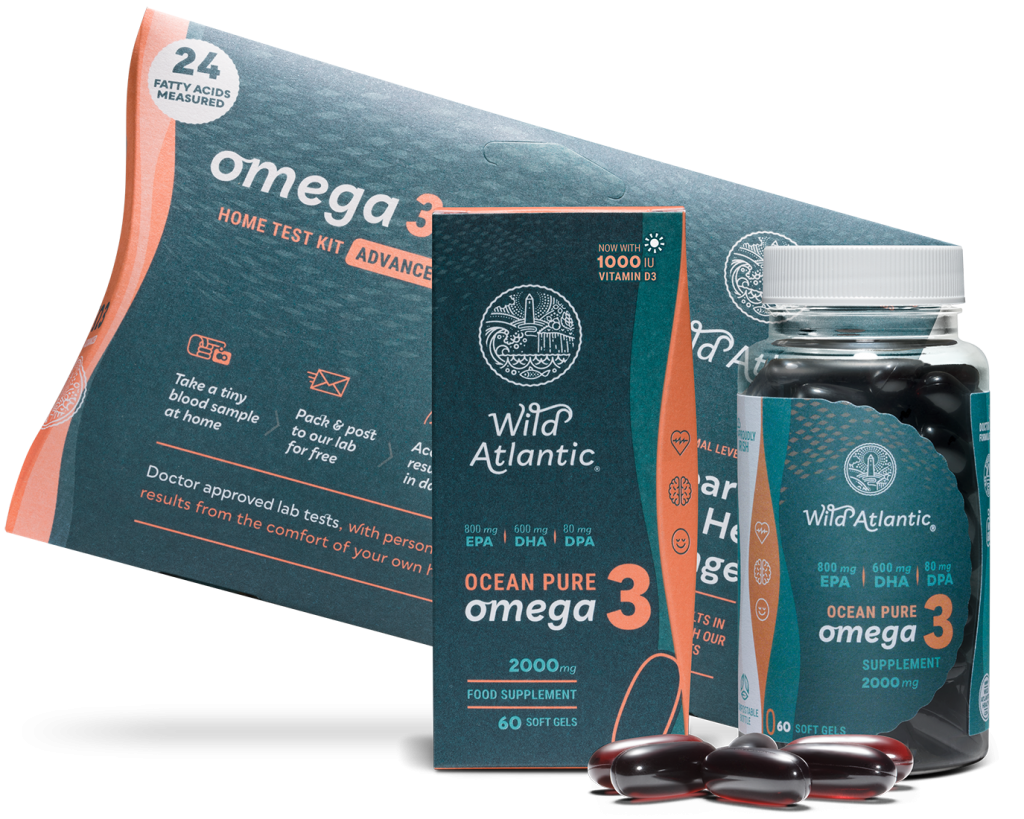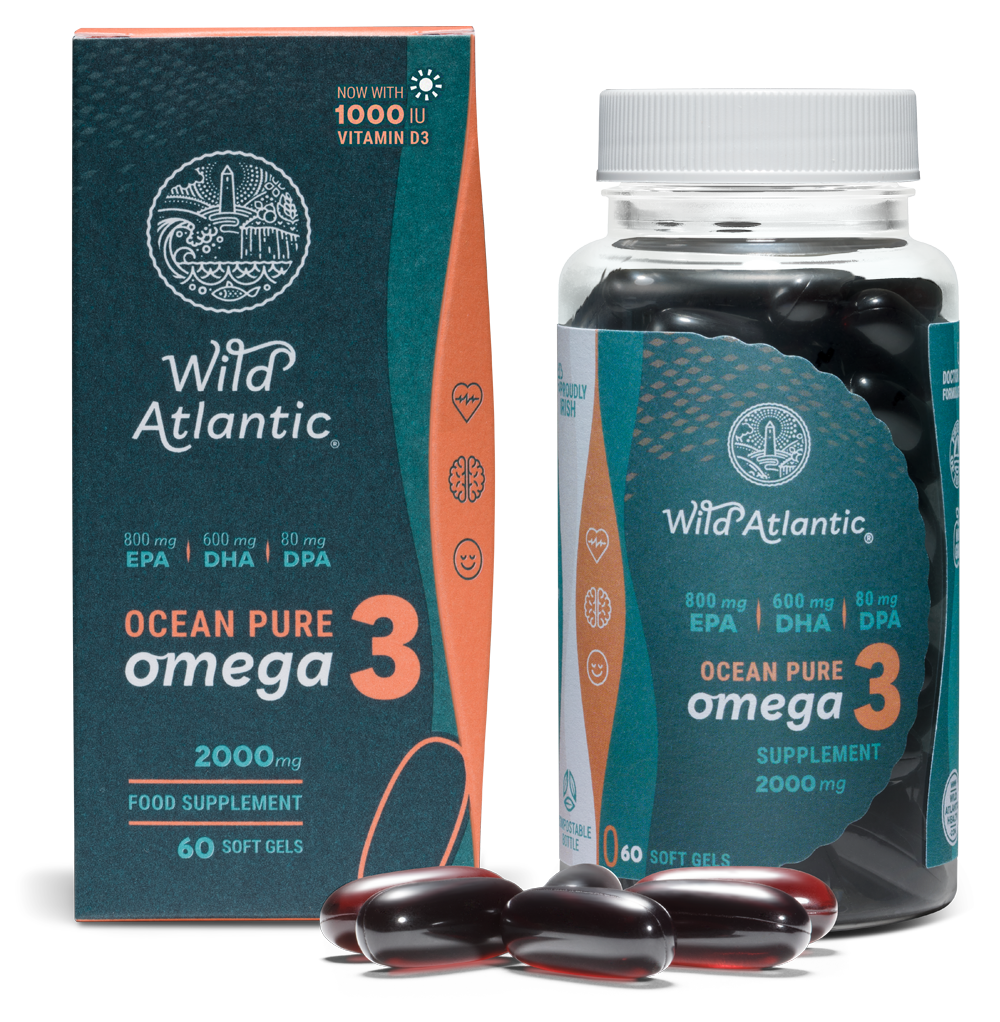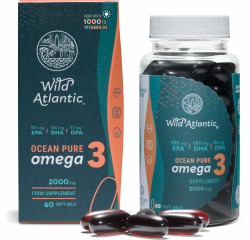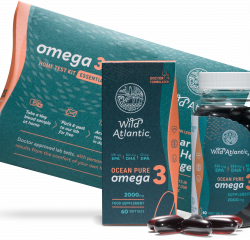Omega 3-6-9 Softgels: Do You Really Need a Complete Omega Supplement?
Omega 3-6-9 supplements have become increasingly popular as a comprehensive way to get essential fatty acids. However, many people wonder if they really need a complete omega supplement or if focusing on omega-3 alone is sufficient. This article will delve into the benefits and drawbacks of omega 3-6-9 softgels, why omega-3 is critical, and how omega-6 and omega-9 fit into the picture. By the end of this article, you’ll understand why an omega-3 supplement may be all you need.
What are Omega 3-6-9 Fatty Acids?
Omega 3-6-9 fatty acids encompass three types of fatty acids that are vital for different bodily functions. They are grouped based on their chemical structure and their roles in health.
Understanding Omega 3 Fatty Acids
Omega-3 fatty acids are polyunsaturated fats found in fish oil, flaxseed oil, and certain nuts and seeds. The key omega-3s are eicosapentaenoic acid (EPA), docosahexaenoic acid (DHA), DPA(Docosapentaenoic acid) and alpha-linolenic acid (ALA). These fatty acids are crucial for heart health, reducing inflammation, and improving brain function.

Benefits of omega 3?
Heart Health
Omega-3 fatty acids, particularly EPA and DHA, are well-known for their heart-protective effects. They help lower blood pressure, reduce triglycerides, and decrease the risk of heart disease. Studies have shown that omega-3 supplements can significantly improve heart health outcomes.Brain Function
DHA, a critical component of omega-3s, is essential for brain development and function. Adequate intake of DHA supports cognitive function and may reduce the risk of neurodegenerative diseases. Omega-3 fatty acids also play a role in mood regulation and mental health. Benefits of taking fish oilAnti-inflammatory Properties
Omega-3 fatty acids have powerful anti-inflammatory effects. They can reduce the production of inflammatory molecules, thus helping manage conditions like arthritis and other inflammatory diseases. This is why omega-3 is often recommended for individuals with chronic inflammation.Are Omega-6 Fatty Acids Inflammatory?
The Role of Omega-6 Fatty Acids
Omega-6 fatty acids are also polyunsaturated and found in vegetable oils, nuts, and seeds. The primary omega-6 is linoleic acid (LA), which can be converted into other omega-6 fats like arachidonic acid (AA). While they are essential, excessive omega-6 intake can promote inflammation.Understanding the Inflammatory Nature
Omega-6 fatty acids are necessary for health but can be problematic in excess. While they support skin health and reproductive health, a high intake of omega-6 can lead to increased inflammation in the body. This is because omega-6 fatty acids are precursors to inflammatory molecules.Balancing Omega-6 Intake
The typical Western diet is high in omega-6 due to the prevalent use of vegetable oils and processed foods. This imbalance between omega-6 and omega-3 can promote chronic inflammation, contributing to conditions such as heart disease, arthritis, and metabolic syndrome. Reducing omega-6 intake and increasing omega-3 can help restore balance and reduce inflammation.The Role of Omega-9 Fatty Acids in Your Diet
What Are Omega-9 Fatty Acids?
Omega-9 fatty acids are monounsaturated fats found in olive oil, avocados, and nuts. Oleic acid is the most prevalent omega-9. Unlike omega-3 and omega-6, omega-9 is not essential because the body can produce it. However, it still offers health benefits such as reducing inflammation and improving heart health.
Common Dietary Sources – Olive Oil, Flaxseed Oil and Fish Oil
Omega-9 fatty acids are abundant in everyday foods such as olive oil, avocados, and nuts. Oleic acid, the main omega-9 fatty acid, is prevalent in these foods and offers numerous health benefits, including improving cholesterol levels and reducing inflammation.
Health Benefits
Consuming omega-9 fatty acids can improve heart health by reducing LDL cholesterol and increasing HDL cholesterol. Omega-9s also support blood sugar control and may help reduce the risk of type 2 diabetes. Since the body can produce omega-9, it is less critical to supplement this fatty acid compared to omega-3.
Do You Need a Complete Omega Supplement?
Evaluating the Need for Triple Omega 3-6-9 Supplements
While omega 3-6-9 supplements offer a comprehensive approach to fatty acid intake, they may not be necessary for everyone. Given the high intake of omega-6 in most diets and the body’s ability to produce omega-9, focusing on omega-3 supplements might be more beneficial. Many brands promote omega 3-6-9 supplements, capitalizing on the perceived need for a balanced intake of all three types of fatty acids. These supplements typically combine fish oil (for omega-3), sunflower or safflower oil (for omega-6), and olive or flaxseed oil (for omega-9).
Why Omega-3 Alone May Be Enough
-
Imbalanced Omega-6 to Omega-3 Ratio:
- The modern diet often contains excessive omega-6 due to its prevalence in processed foods and vegetable oils.
- This imbalance can lead to increased inflammation and associated health issues.
- Supplementing with omega-3 alone helps correct this imbalance by boosting your intake of the more deficient omega-3s.
-
Sufficient Omega-6 and Omega-9 from Diet:
- Most people already get enough omega-6 and omega-9 from their regular diet.
- Consuming additional omega-6 through supplements is unnecessary and potentially harmful.
- Omega-9 is non-essential because the body can produce it, and it is also plentiful in common dietary sources like olive oil.
How to Choose the Correct Omega Supplement
Avoid Omega 3-6-9 supplements
Numerous brands market omega 3-6-9 supplements, leveraging the perceived need for a balanced intake of all three fatty acids. However the excess consumption of omega 6 and omega 9 fatty acids is simply unnecessary.
Potency
Form of Fish Oil
Our formulation includes natural triglyceride (rTG) form omega-3s, which are easier for your body to absorb compared to the ethyl ester form found in many other supplements.
The Missing Omega – DHA
DHA is a major structural component of the brain and is crucial for its proper development and function. It supports cognitive processes, including memory, learning, and concentration. Adequate DHA levels are associated with a lower risk of cognitive decline and neurodegenerative diseases like Alzheimer’s.
Conclusion: The Best Approach to Omega Supplements
Focus on Omega-3
Given the typical dietary imbalance and the critical role of omega-3 fatty acids, focusing on omega-3 supplements is often the best approach. They help address deficiencies and provide numerous health benefits without the potential drawbacks of excessive omega-6 intake.
Omega 3 is an essential fatty acid – which means it isn’t made by our bodies and the only way to get it is to eat oily fish or take a high quality supplement. 35% of the Irish population don’t eat fish and only 20% of people taking an Omega-3 supplements see a significant increase in their Omega-3 levels. We would always say Test don’t Guess to understand what your levels are and then take a high strength Omega 3 supplement that can help you increase your Omega-3 index to the 8-12% range which is needed for optimal health and 5 year life extension.






























